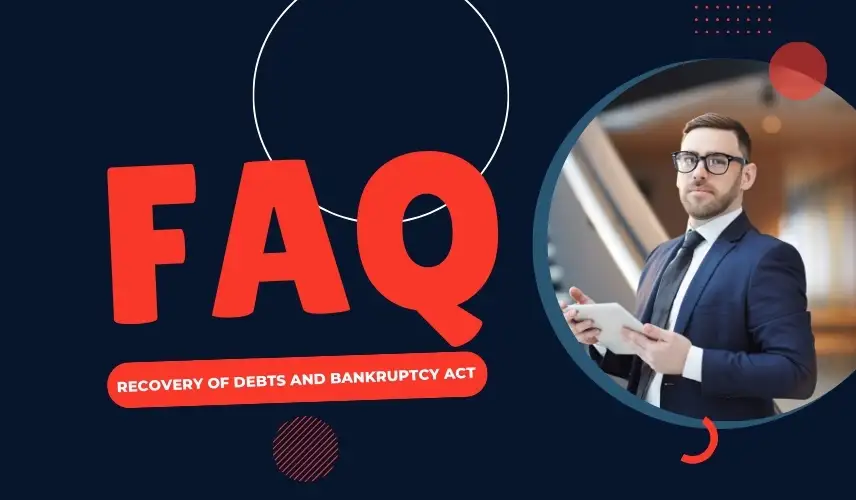
FAQ About the Power of Recovery Officer and About the Procedure of Recovery Officer
Answer: The Recovery Officer of the Debts Recovery Tribunals, on receipt of a recovery certificate from the Presiding Officer of the Debts Recovery Tribunals, has to take step to recover the amount of debt specified in the certificate by one or more of the modes mentioned in
Section 25 of RDB Act, 1993.
Answer: The recovery officer of Debts Recovery Tribunals have the power to recover the debt mentioned in the recovery certificate by attachment and sale of the movable or immovable property of the defendants.
(See Section 25A of RDB Act, 1993)
Answer: The recovery officer of Debts Recovery Tribunals have the power to recover the debt mentioned in the recovery certificate by taking possession of property of the defendant and appointing receiver for such property and to sell the same.
(See Section 25A of RDB Act, 1993)
Answer: The recovery officer of Debts Recovery Tribunals have the power to recover the debt mentioned in the recovery certificate by arrest of the defendants and his detention in prison.
(See Section 25A of RDB Act, 1993)
Answer: The recovery officer of Debts Recovery Tribunals have the power to recover the debt mentioned in the recovery certificate by appointing a receiver for the management of the movable or immovable properties of the defendant.
(See Section 25A of RDB Act, 1993)
Answer: It shall not be open to the defendant to dispute before the Recovery Officer the correctness of the amount specified in the certificate, and no objection to the certificate on any other ground shall also be entertained by the Recovery Officer.
(See Section 26(1) of RDB Act, 1993)
Answer: The provisions of the Second and Third Schedules to the Income- tax Act, 1961 and the Income-tax (Certificate Proceedings) Rules, 1962 apply to recovery of debts under RDB Act, 1993.
(See Section 29 of RDB Act, 1993)
Answer: Section 60 of the Code of Civil Procedure gives a list of properties which are not liable for attachment and sale. Some of the exempt properties are mentioned below:
“(c) houses and other buildings (with the materials and the sites thereof and the land immediately appurtenant thereto and necessary for their enjoyment) belonging to an agriculturist or a labourer or a domestic servant and occupied by him”
“(i) salary to the extent of the first one thousand rupees) and two-thirds of the remainder in execution of any decree other than a decree for maintenance”
“(kb) all moneys payable under a policy of insurance on the life of the judgment-debtor”
“(kc) the interest of a lessee of a residential building to which the provisions of law for the time being in force relating to control of rents and accommodation apply”
Categories
Recent FAQs
-

FAQ About Filing of Recovery Application(Original Application) in Debt Recover Tribunal
Know more about frequently asked questions [...]
-

FAQ About the Meaning of “debts”
Know more about frequently asked questions [...]
-

FAQ About What Should Be Done by Debts Recovery Tribunal After the Banks/financial Institutions File the Recovery Application(Original Application)
Know more about frequently asked questions [...]
-

FAQ About What Are the Power of Debts Recovery Tribunal About Passing of Interim Order Like Injunction, Attachment, Receiver
Know more about frequently asked questions [...]
-

FAQ About Written Statement to Be Filed by Borrower/guarantor Including Counter Claim/set Off
Know more about frequently asked questions [...]
-

FAQ About Judgment on Admission or When the Borrower Admit the Claim of the Bank/ Financial Institution Either in Full in Part
Know more about frequently asked questions [...]
-

FAQ About the Procedure for Proving Facts and Documents on by Bank/ Financial Institution or by Borrower/guarantors
Know more about frequently asked questions [...]
-

FAQ About Suits Filed by Borrower/guarantors in Civil Court
Know more about frequently asked questions [...]
-

FAQ About the Final Order That May Be Passed by Debts Recovery Tribunal on the Recovery Application(Original Application) Filed by Banks/ Financial Institutions
Know more about frequently asked questions [...]
-

FAQ About Final Order / Certificate Against a Dead Person
Know more about frequently asked questions [...]
-

FAQ About Appeals to Debts Recovery Tribunals
Know more about frequently asked questions [...]
-

FAQ About Pre-deposit for Preferring an Appeal to Debts Recovery Tribunals Under RDB Act, 1993
Know more about frequently asked questions [...]
-

FAQ About the Procedure Which is to Be Followed by Debts Recovery Tribunals and Debts Recovery Appellate Tribunals Under Rdb Act, 1993
Know more about frequently asked questions [...]
-

FAQ About the Power of Recovery Officer and About the Procedure of Recovery Officer
Know more about frequently asked questions [...]
-

FAQ About the Power of Presiding Officers After Issuing a Recovery Certificate
Know more about frequently asked questions [...]
-

FAQ About Filing an Appeal Before the Presiding Officer Against an Order of the Recovery Officer of Debts Recovery Tribunal
Know more about frequently asked questions [...]
-

FAQ About Sale by Recovery Officer
Know more about frequently asked questions [...]
-

FAQ About Arrest Detention in Civil Prison
Know more about frequently asked questions [...]
-

FAQ About Various Misc. Matters Under RDB Act,1993
Know more about frequently asked questions [...]
